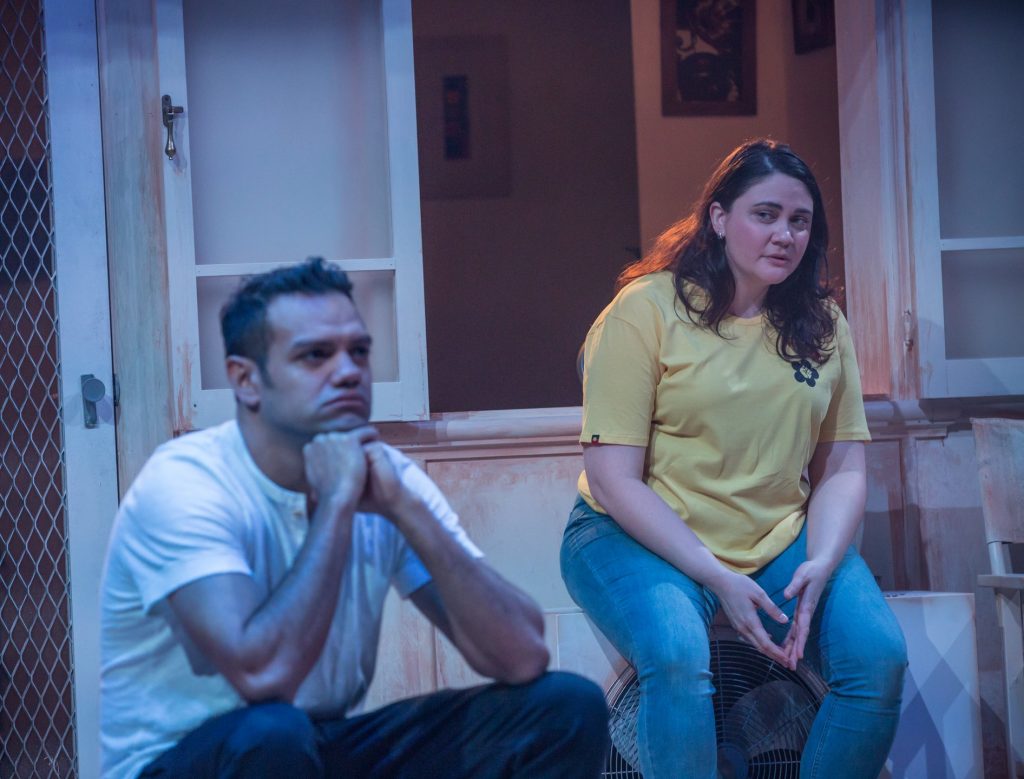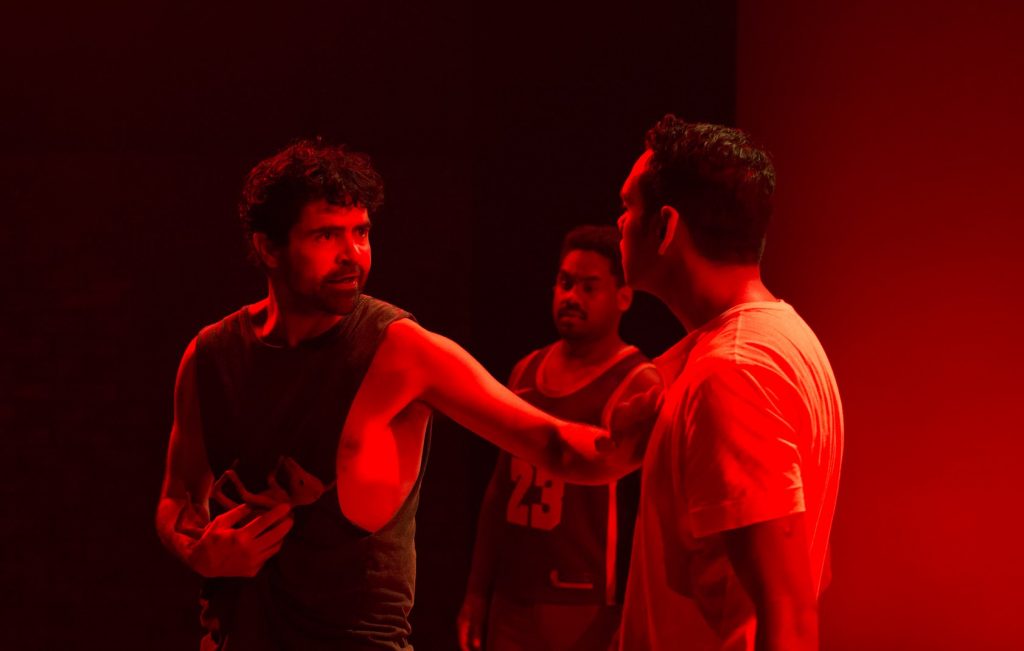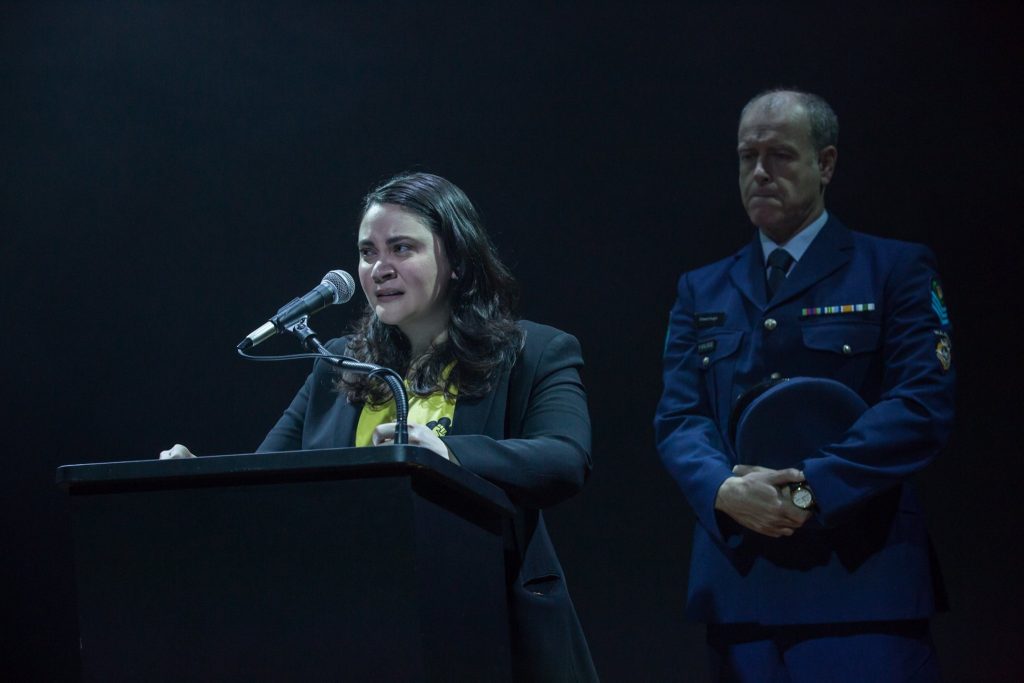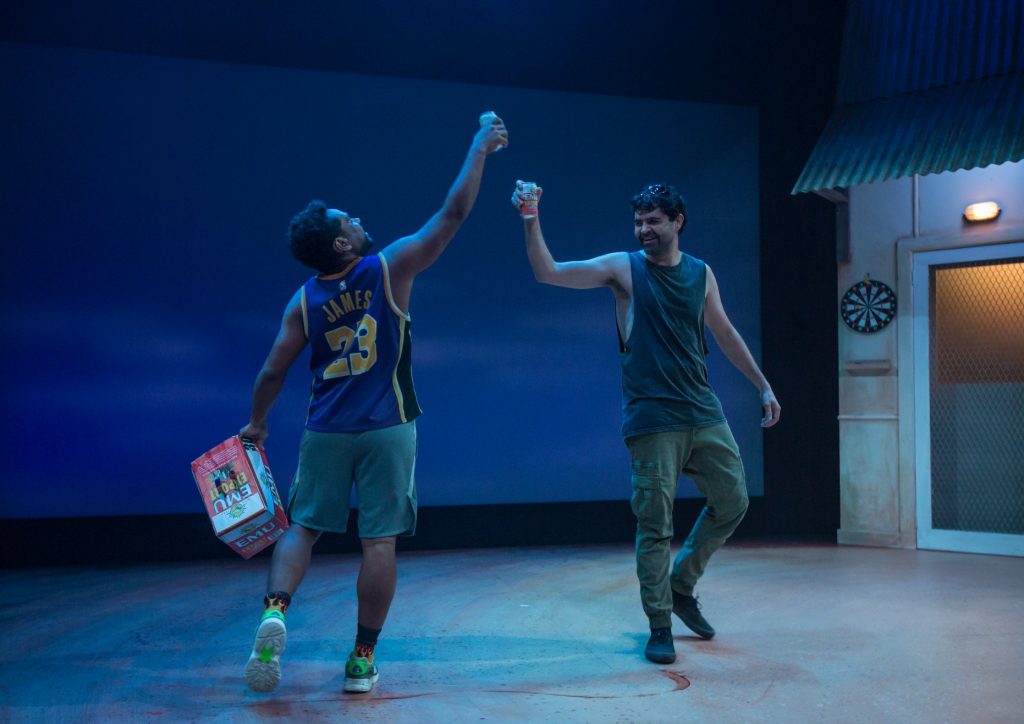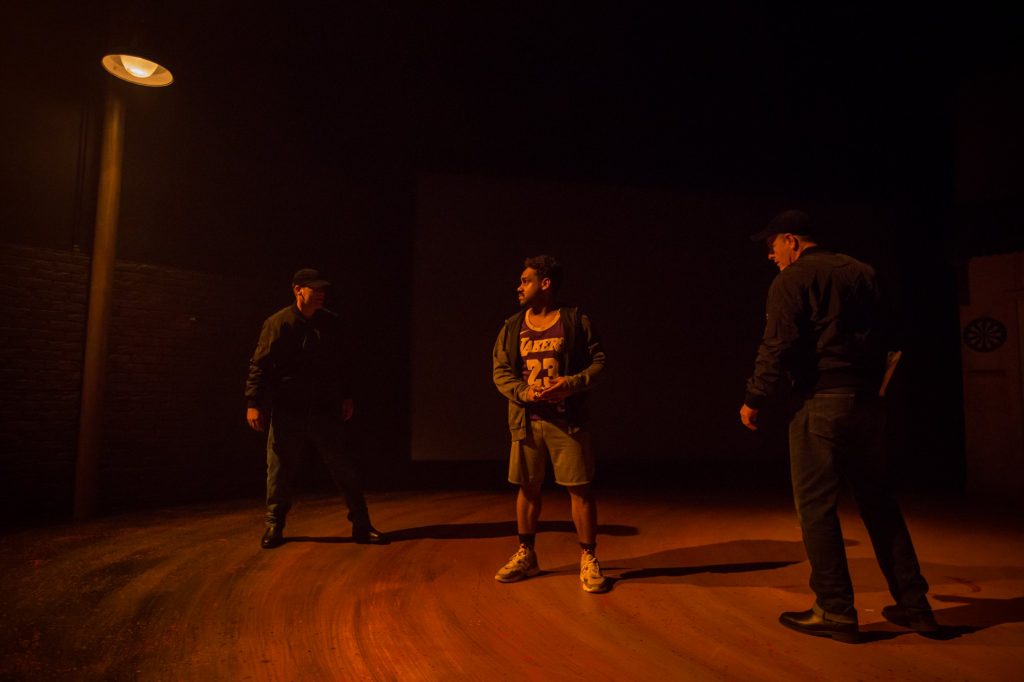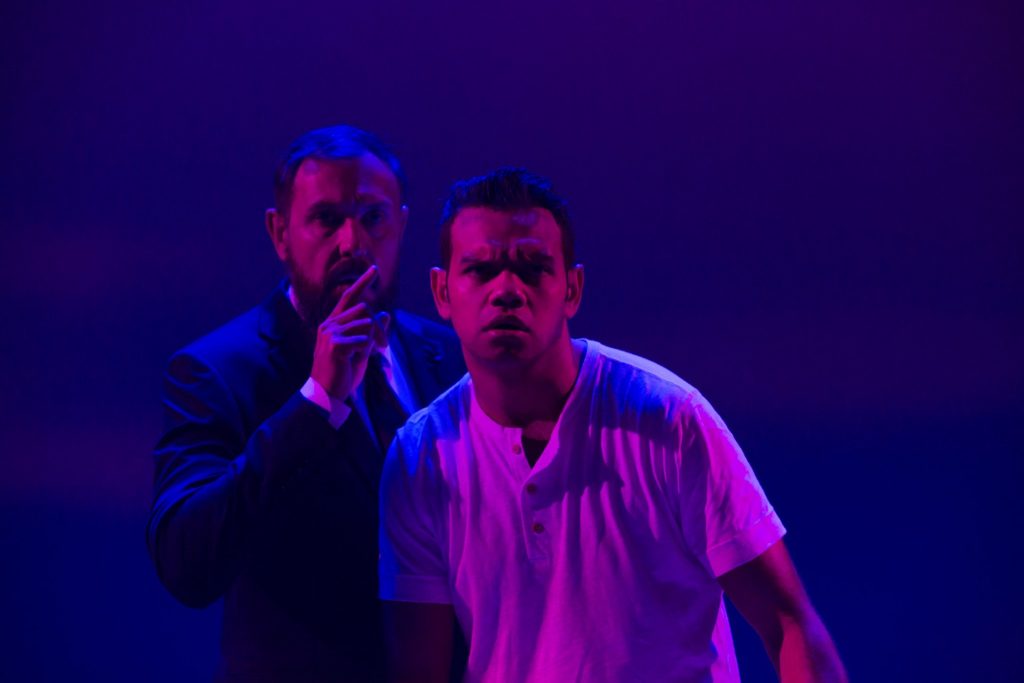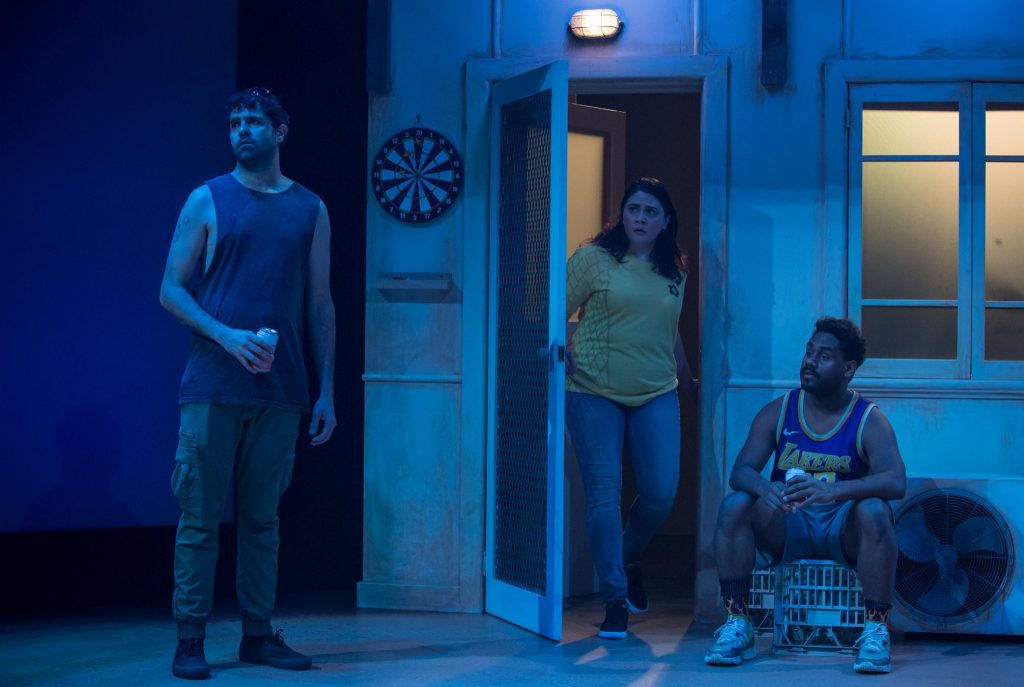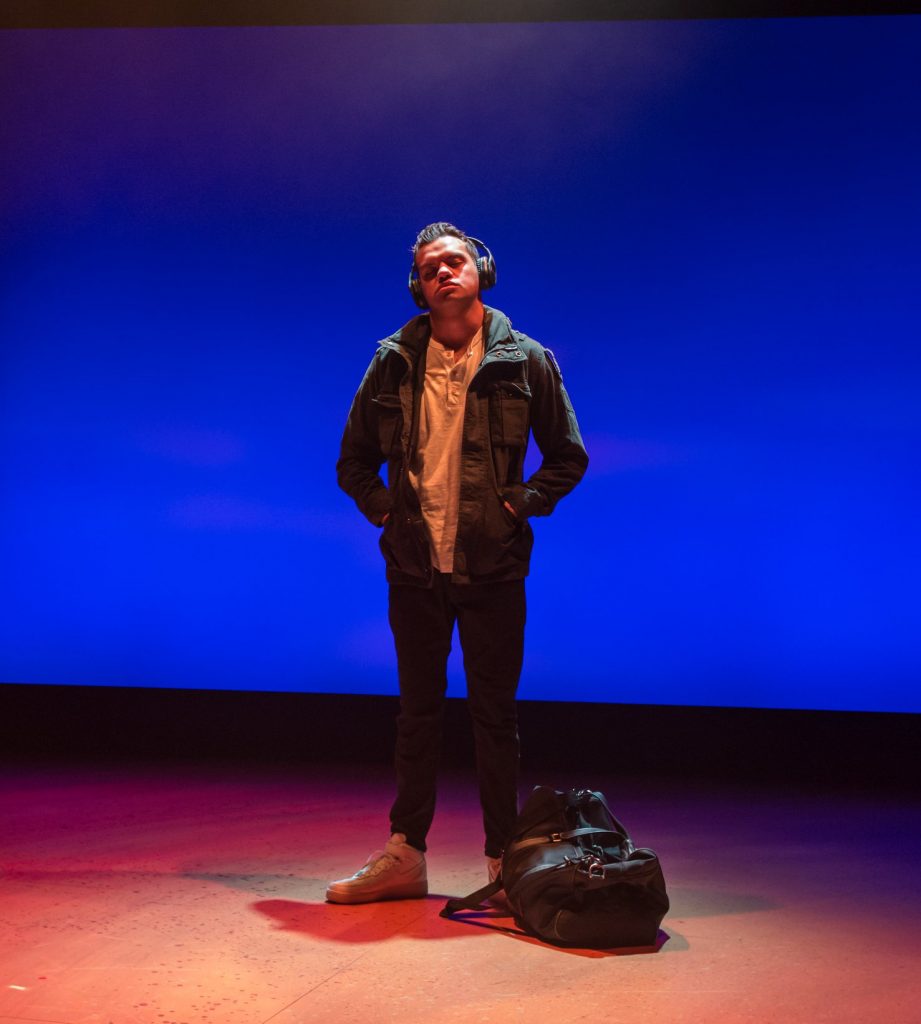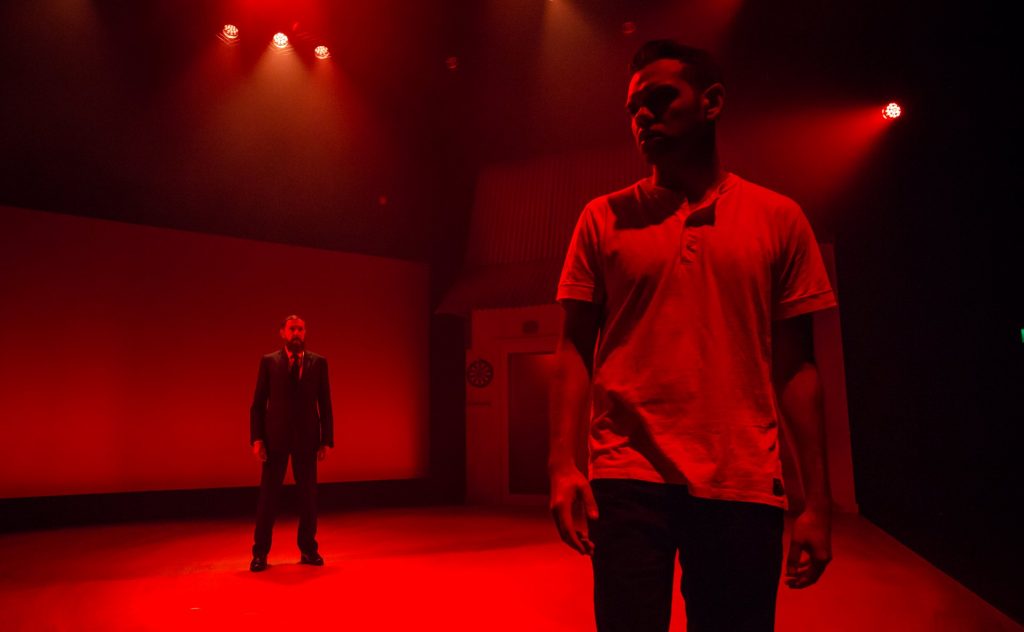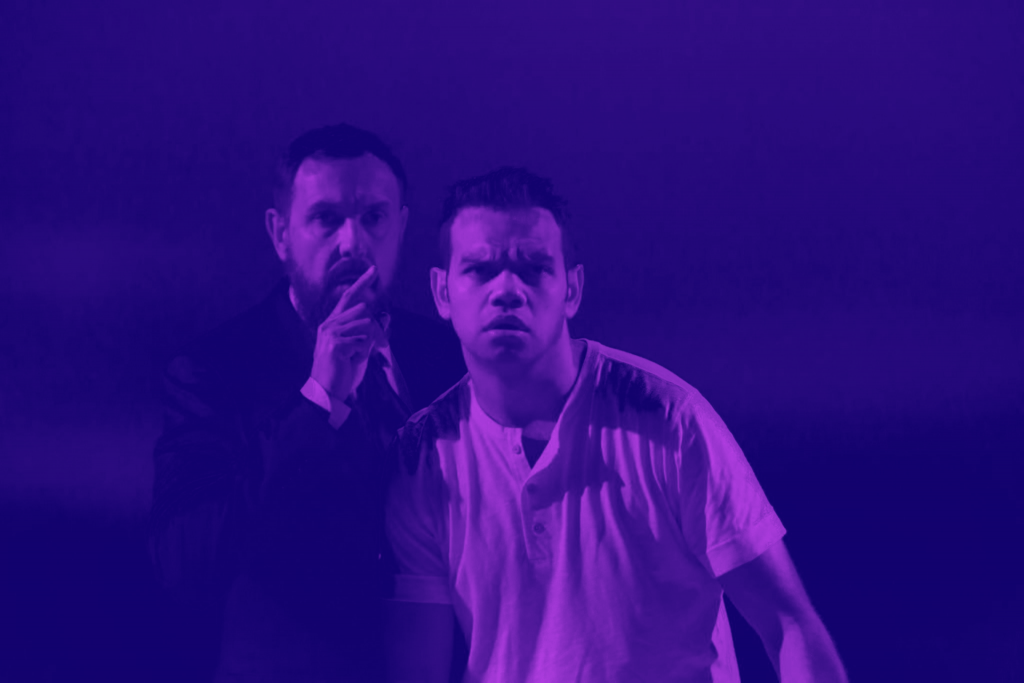
‘City of Gold’ // Queensland Theatre
‘City of Gold’ was persuasive.
Respected storyteller, Meyne Wyatt, has presented his newest work, ‘City of Gold’ at Queensland Theatre this week. Political theatre at its finest, this piece is a critical examination of the lived experience of race in a modern Australia. It incorporates a complex exploration of the diverse challenges and beliefs of classes, geographies, and abilities.
‘City of Gold’ follows the story of a young man split between two worlds. One as an urban-dwelling middle-class performer, and the other, a working-class country boy. The story follows the young man in his search for purpose and identity, set against the backdrop of the loss of his father. With many deeply political elements, such as explicit calls to action and subtle cultural references, the play is balanced by moments of grounded realism as the young man and his family come to grips with what it means to grieve, and what it means to be indigenous.
The production contained many ‘Epic Theatre’ conventions, from fragmentary props to direct addresses to the audience; actors performing multiple roles to onstage costume changes; and a range of other alienation techniques. A far cry from politically correct, the piece stands to open eyes and bring to attention the issues of hardship facing indigenous people in society today.
The shows second act made the political component more explicit, with a disturbing depiction of the indigenous experience including chains, religious aggression, and the commercialisation of culture. Following this, Meyne Wyatt, in the lead role of Breythe, gave a political lecture, turned philosophical sermon. The speech, directed at the audience, included elements that seemed to be ad-libbed, and tangents that spilled naturally from his mouth. Both of which were fueled by passion and never felt disconnected from the message at large.
An undertone of his push was the need for a political centre, a place of truth, amongst the controversy and conflict of extremists. The dialogue navigated through the disconnect of social keyboard warriors on the left, and the blatant ignorance of the white supremacists of the far right. In one instance, Wyatt makes the controversial suggestion that perhaps the far right is easier to deal with. That the level of animosity and explicit racism is more identifiable and therefore more avoidable than the subtle and condescending jabs of progressives.
Wyatt embodied his script but never allowed the freedom of being both the writer and the performer to overtake his character. Throughout the play the audience observed as Breythe’s persona and dialect returned to that of his family, and as he tackled the challenge of choosing between values and pragmatism. Wyatt performed honestly and engagingly, moving the minds of the audience and carrying the show.
Maitland Schnaars, credited only as Dad, doubled as both Breythe’s father and as a Willie Wagtail. A significant cultural motif, the Willie Wagtail is just one of several messenger birds of indigenous tradition. Much like the crow for some indigenous communities, the Willie Wagtail relays messages of warning, of caution and of death. Used as a theatrical motif and appearing just before significant moments, the Wagtail reflected one of the core messages of the play; to pause, reflect and act. The bird, much like the show, stands to persuade viewers to be and do more. Schnaars cleverly crafted his body movements to both mimic that of the bird, and pay homage to the dances of indigenous peoples’ from times past.
Another significant character in the plot was that of Mathew Cooper’s Mateo. Mateo shared beliefs that emphasised individual responsibility and honouring one’s family as a priority above bigger social activism. Cooper made Mateo unapologetically honest, delivering one of the most consistent performances in the play.
The antagonist of the family in many ways, Mateo provided conservative indigenous people a voice. In political theatre, it is so easy to bias one perspective and to have characters share a united voice, to the detriment of individuality and dimension. The conflict between Mateo and Breythe, and their divergent ideas about their place in the world was given a platform and added a multidimensional aspect to the story’s portrayal of indigenous people. This was a necessary addition in avoiding the tokenism and superficiality that Wyatt’s script boldly rejects.
Depth and dimension were not only created in this play through clever script-writing and performances, but also the technical elements. Director, Isaac Drandic, made use of the space by utilising all four entrances and incorporating moments in silhouette.
Composer and Sound Designer Tony Brumpton added another layer to this with subtle but realistic soundscapes, including crickets in the night, cars passing by and pulling up on the driveway, as well as family member’s voices flowing from down the hallway.
Lighting Designer Jason Glenwright emphasised Drandic’s silhouettes with bold colours and timely blackouts, as well as colourful transitions that created smooth shifts in location and time.
The set, designed by Simone Tesorieri and Simona Cosentini was contrasting. Centre stage was an underutilised projection screen, mostly used as a flat of colour, while on opposite sides of the stage were an elaborately detailed house facade and a dark-bricked street wall. This allowed some ambiguity about the location of some scenes.
Completing the cast was the talented Jeremy Ambrum, as the lovable Cliffhanger, Shari Sebbens as the sensible Carina, as well as Christopher Stollery and Anthony Standish who took on a variety of roles.
An added component to the show was the inclusion of Auslan interpreters. In the story, Jeremy Ambrum’s character Cliffhanger is hard of hearing. He plays the role convincingly and provides a loveable comic relief throughout an otherwise dark storyline. Without giving spoilers, this later becomes a plot device, which drew parallels between the struggle of the indigenous and deaf communities.
‘City of Gold’ delivers a multitude of important messages such as the responsibility of using one’s voice, of being an active member of the community, and also of taking responsibility for oneself as an individual. This year’s NAIDOC week theme of voice, treaty and truth perfectly encapsulates the core message of the ‘City of Gold’ narrative.
‘City of Gold’ performs until Saturday, 20 July 2019 at Queensland Theatre, South Brisbane. For more information visit www.queenslandtheatre.com.au.
Photos by Stephen Henry





